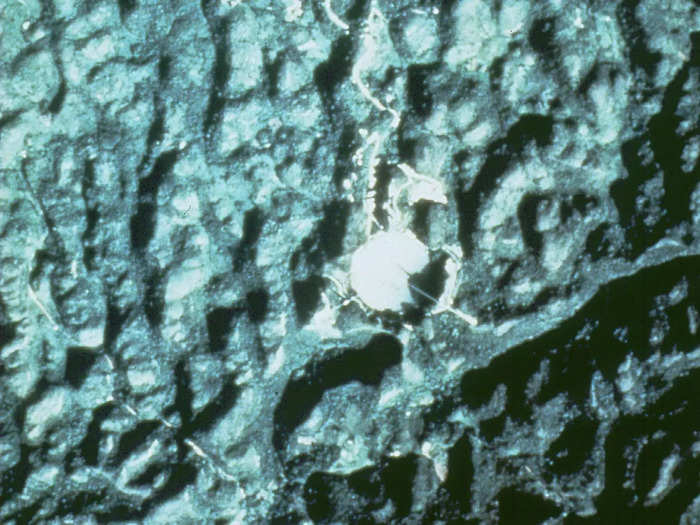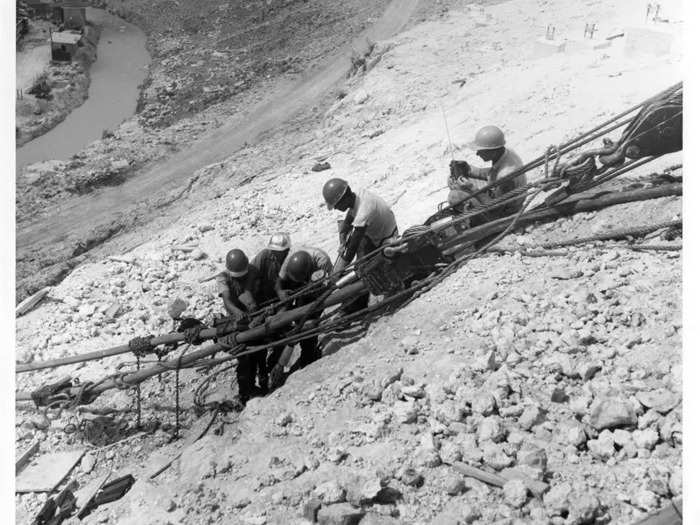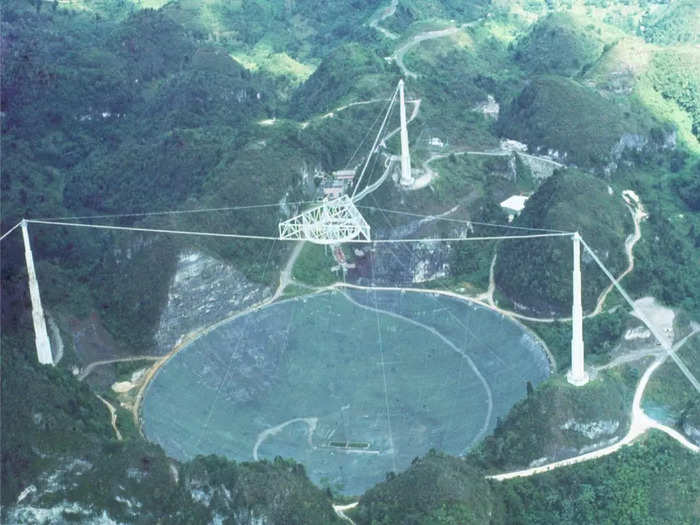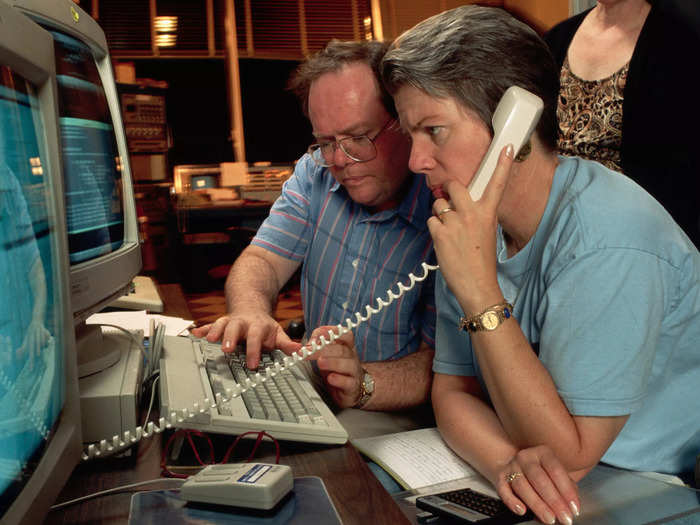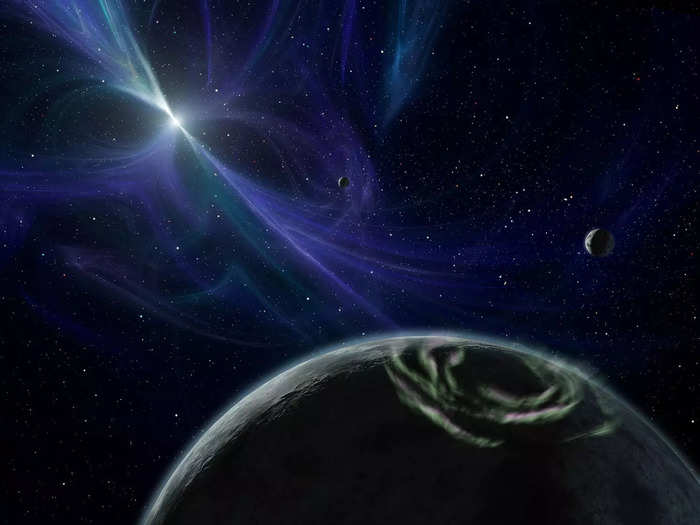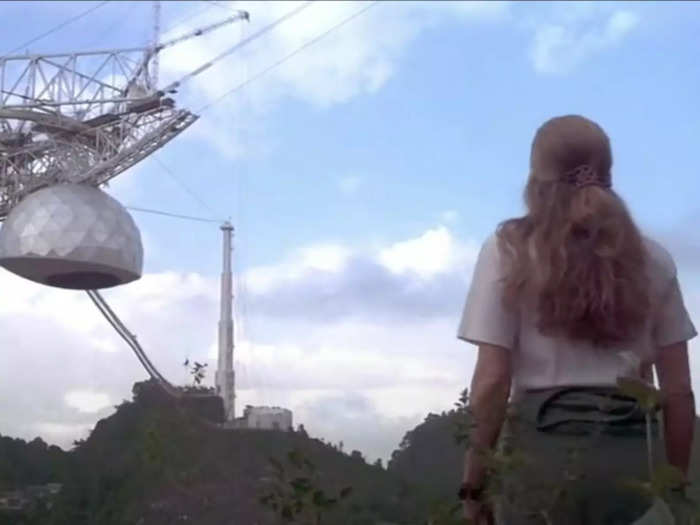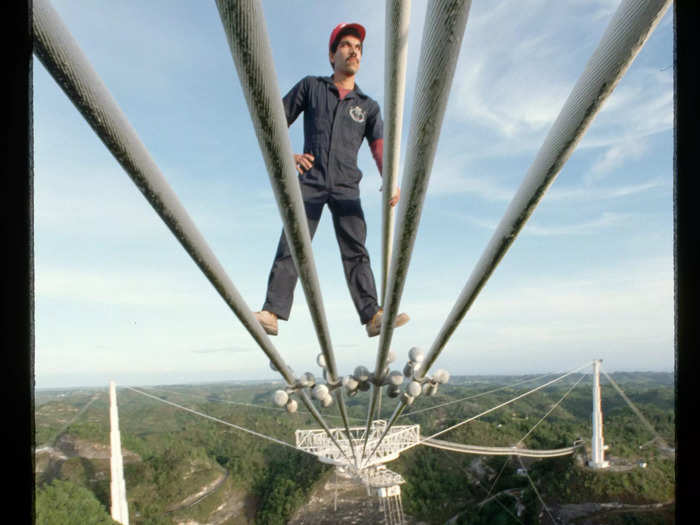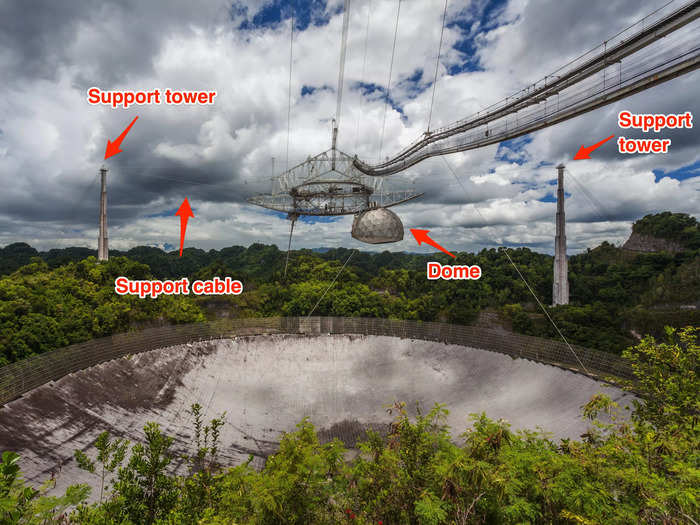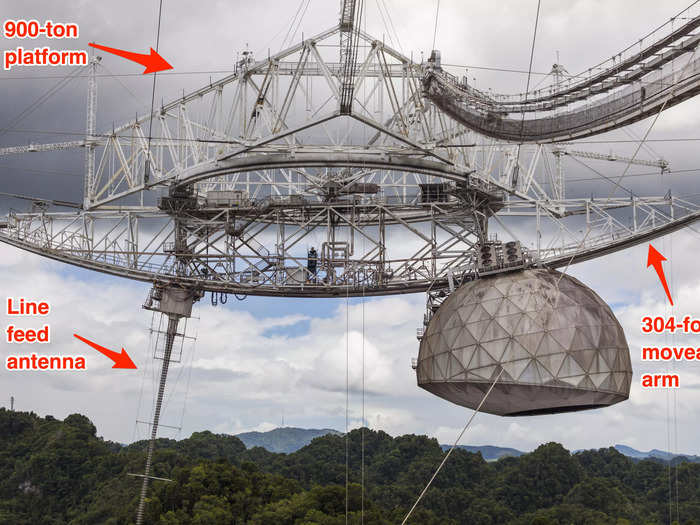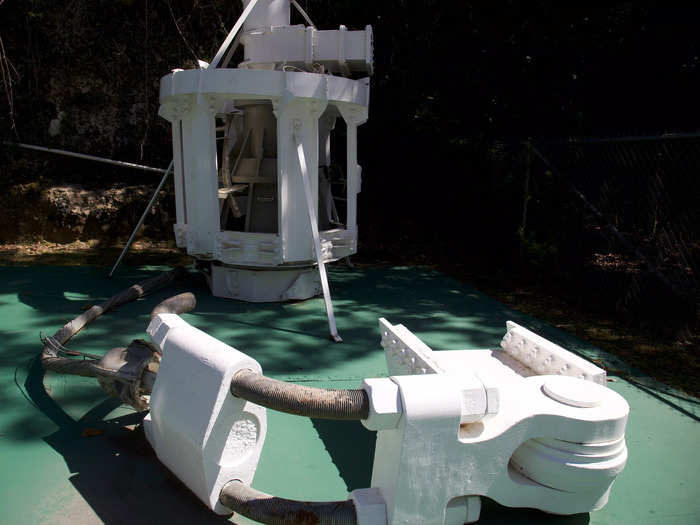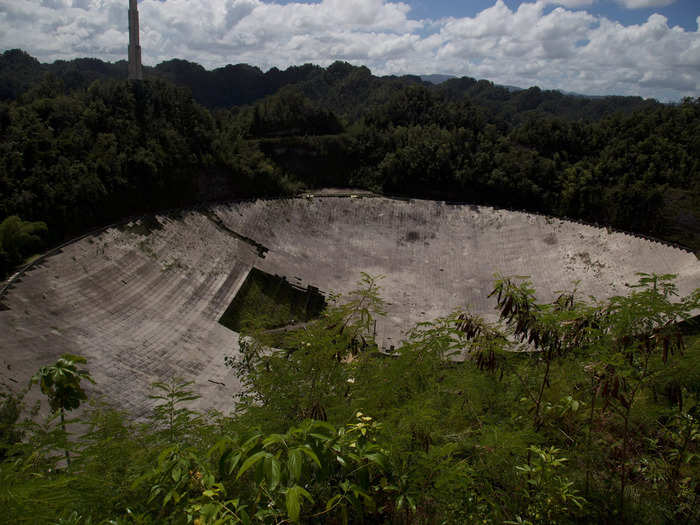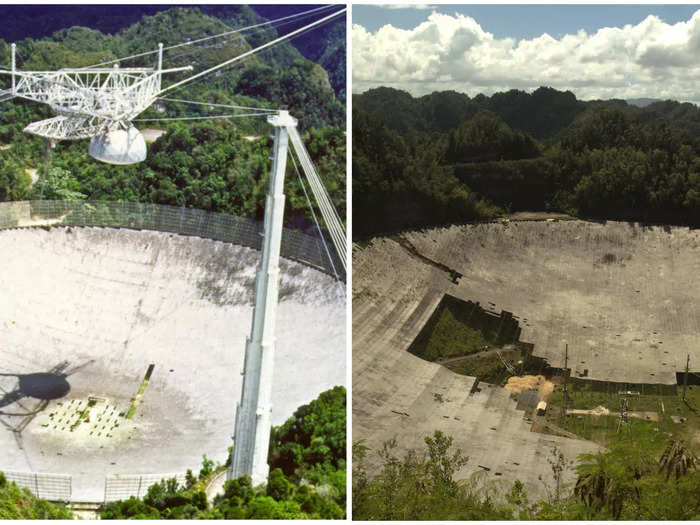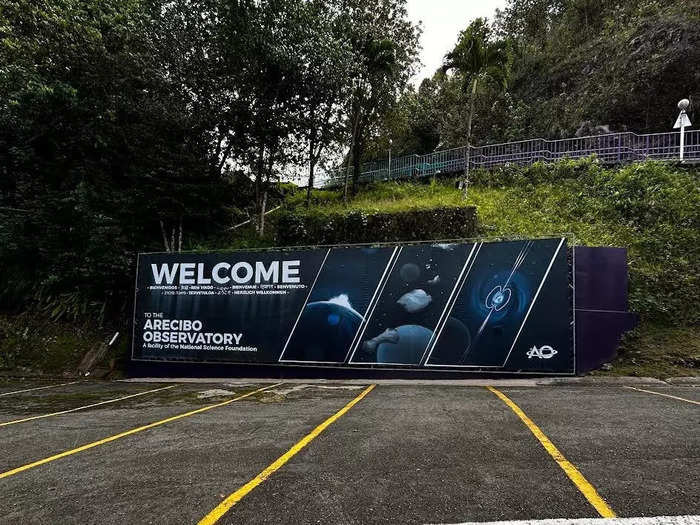The Arecibo Observatory in Puerto Rico, left, prior to the 2020 collapse, and after the collapse, right, in October 2022.Arecibo Observatory/Paola Rosa-Aquino
- Before-and-after images of the Arecibo Observatory show a dramatic collapse that ended an era in space research.
- Astronomers mourned the loss of the observatory, which faced natural disasters.
The Arecibo Observatory, a legendary radio telescope nestled in the lush mountains of Puerto Rico, has served as an essential lookout into the cosmos for nearly six decades.
From tracking asteroids to discovering the first planets outside our solar system, Arecibo made fundamental contributions to our knowledge of space.
The telescope's observing equipment hung from a platform strung over a 1,000-foot radio dish until December 1, 2020. Following a series of series of misfortunes, ranging from earthquakes to hurricanes, the cables supporting that platform gave out, causing the telescope to collapse onto the vast dish below it.
Here's how the telescope is faring two years after its collapse.
The telescope was built into a natural sinkhole in northwest Puerto Rico.
A high-altitude view of Puerto Rico's Arecibo Observatory, taken in the 1980s. Arecibo Observatory
Members of Arecibo's neighboring communities helped construct the observatory.
Workers connecting and lifting the cables that supported the platform in September 1962. Arecibo Observatory
The observatory first opened in November 1963. It was initially made of metal mesh, meaning you could through it to the sinkhole below.
Aerial view of Arecibo's William E. Gordon telescope before its dish plates were swapped out in 1973. Cornell University/Arecibo Observatory
Arecibo was a workhorse for astronomers.
Astronomers Larry Webster and Jill Tarter watch computer screens at the observatory on October 10, 1992. They are beginning a search for signs of extraterrestrial life. Roger Ressmeyer/Corbis/VCG via Getty Images
In 1974, it beamed the first radio message intended for an alien audience. The coded message detailed chemical formulas for components of DNA, as well as simple drawings of a human figure and Arecibo.
The Arecibo message, with colors added to highlight the DNA, human, and telescope drawings. Astronomers hoped it would be heard by any intelligent civilization living near the Milky Way galaxy. norro
It detected the first known exoplanet orbiting a pulsar, or dense remnants of a collapsed giant star that emit radiation, in 1992.
Artist's impression of extrasolar planets in the pulsar PSR B1257+12. NASA/JPL-Caltech/R. Hurt
The telescope was a film star thanks to appearances in "GoldenEye" and "Contact."
The Arecibo Observatory was featured in the 1997 film "Contact," starring Jodie Foster. ostinatoscope/YouTube
The radio telescope had a 1,000-foot-wide, aluminum-lined dish that covered 18 acres in northwest Puerto Rico.
A technician checks the cables suspending the receiver over the radio telescope dish in July 1989. Roger Ressmeyer/Corbis/VCG via Getty Images
Cables helped support a metal platform high above the dish.
Aerial view of the Arecibo Observatory in Arecibo, Puerto Rico, on July 9, 2012. Universal Images Group/Getty Images
The receiver was on a 900-ton platform, suspended 450 feet above the dish, on a 304-foot moveable arm.
Arecibo's massive dish reflected radio waves from space to its suspended platform, on July 9, 2012. Universal Images Group via Getty Images
It collapsed in December 2020, after being battered by Hurricane Maria in 2017 and rattled by earthquakes.
Two critical cables snapped, causing the suspended platform to collapse and tear through Arecibo's dish. Paola Rosa-Aquino
Videos of the crash show it began when cables connecting the hanging platform to one of the towers snapped.
There are 19,000 remaining panels on the dish from the original 37,000.
The collapse damaged many panels that received incoming radio waves, leaving an expanse of greenery underneath. Paola Rosa-Aquino
Side-by-side images of the Arecibo Observatory, before and after its collapse, show dramatic damage that ended an era in space research.
The Arecibo Observatory in Puerto Rico, left, prior to the 2020 collapse, and after the collapse, right, in October 2022. Arecibo Observatory/Paola Rosa-Aquino
The National Science Foundation recently announced it wouldn't rebuild Arecibo. The telescope's legacy, however, will live on.
Entrance to the Arecibo Observatory, in October 2022. Paola Rosa-Aquino
